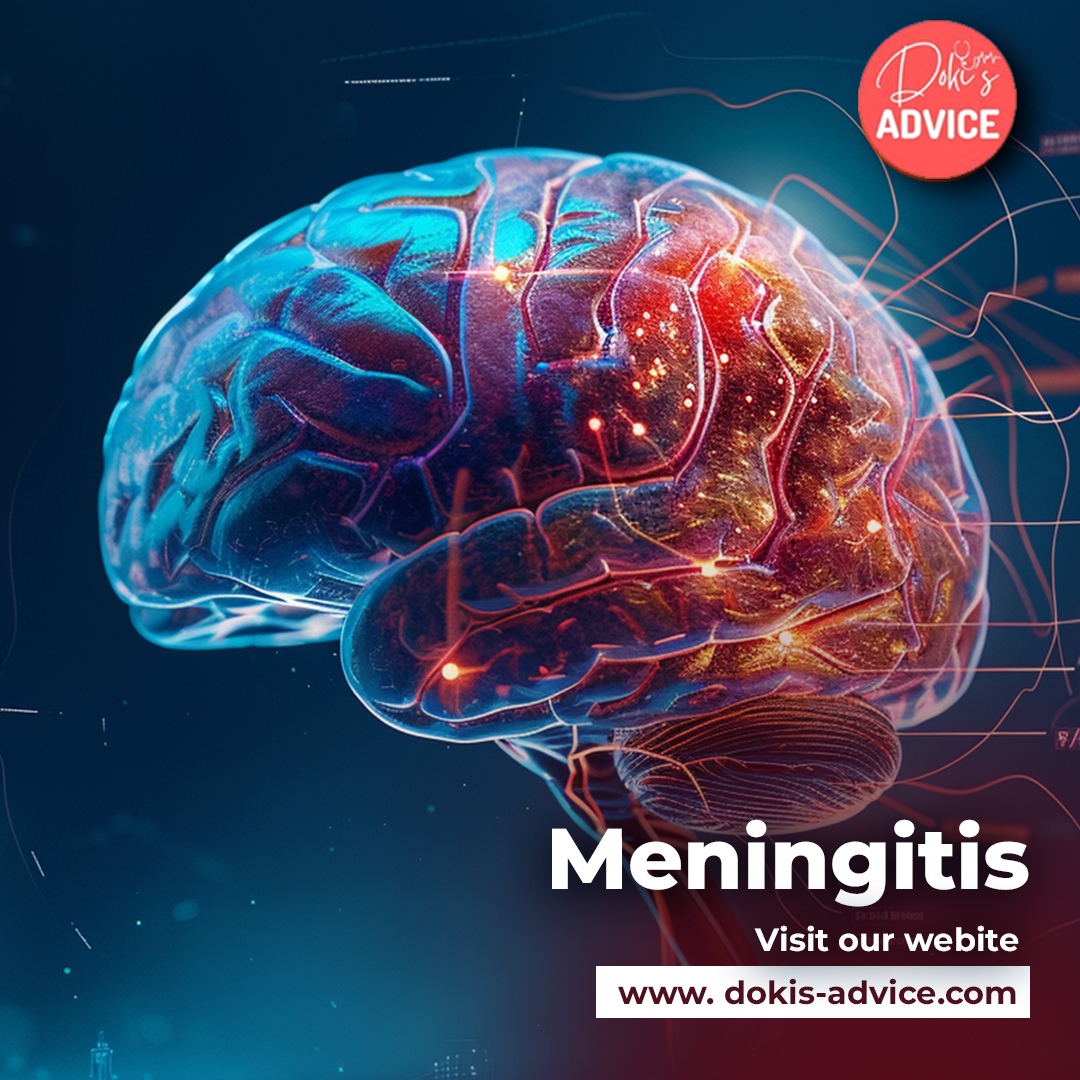Meningitis

So, what do we understand by this?
Meningitis is an inflammation of the protective layer membrane that covers the brain and the spinal cord. Anyone can get meningitis, from small babies to older people, and it can be very severe, causing brain and spinal cord damage and long lasting disabilities.
Meningitis is caused by various agents, like bacteria (Neisseria meningitidis, pneumococcal bacteria, and bacteria causing tuberculosis), viruses such as HSV, chickenpox, and other harmless viruses. An infection caused by the HSV, chicken pox viruses, or bacterial meningitis is considered an absolute emergency that needs immediate treatment with antiviral or antibacterial drugs. Meningitis caused by bacteria can be treated by giving antibiotics, depending on the bacteria that caused the meningitis in the first place, and it should be an antibiotic that can pass through the brain-brain barrier.
Before we delve into the topic, it is important to state that, meningitis can be prevented through vaccination. The meningitis vaccine can be given to children from the age of 12 months and all other age groups, especially those living within the meningitis belt. So, what exactly is the meningitis belt? These are the regions in Africa that are highly affected by meningitis, hence, a recommendation for the meningitis vaccine for kids of the age of 12 months as well as a pneumococcal vaccine.
Meningitis is spread by respiratory secretions through sneezing, coughing or kissing. In some cases, we do have meningitis carriers who can spread the infection yet they don’t suffer from it.
Children are mostly affected by bacterial variants, for example, the pneumococcal variant, which is also the leading cause of pneumonia.
What are some of the signs and symptoms of meningitis?
- Headaches
- high fever
- nausea and vomiting
- irritability to light
- confusion
- seizures
- paralysis
- Drowsiness or unresponsiveness
- stiff neck
- a rash that does not fade
The symptoms do not appear in any order and to some extent, some patients do not show any of the of the signs or symptoms stated above.
The incubation period for bacterial meningitis is around 2 to approximately 4 days but can also extend to 10 days. It is very important to recognise bacterial meningitis at an early stage and begin with antibiotic medication, as it is crucial because it can quickly end in death within hours or days.
The incubation period for viral meningitis is around 2 to 14 days. It mostly begins acutely, lasting a few hours to a few days. HSV or chickenpox virus caused meningitis, also needs early therapy with antiviral drugs. Other less harmless viruses that cause meningitis can heal by themselves after a couple of days to weeks. But since we cannot differentiate which viral infection or bacterial infection is causing meningitis, it’s always advisable to seek medical advice.
Let’s delve into the diagnosis of meningitis
- clinical examination through your physician
- inspection of your skin
- examination of the meningitis sign
- blood tests and microscopic examination of a blood stain
- Lumbar puncture to collect cerebrospinal fluid for microscopic examination
- in some cases, a CT-Scan can be necessary before the lumbar puncture. This is important in situations where symptoms such as unresponsiveness, loss of consciousness neurological symptoms that show suspicion of intracranial pressure signs are present.
So how do you treat a meningitis?
- Early antibacterial treatments
- supplementing the treatment with the antiviral treatments by suspicion of viral meningitis
- cortisone in cases of intracranial pressure suspicion
- supportive therapy such as
- giving paracetamol or ibuprofen for pain or fever’s
- Therapies for seizures in cases where epileptic seizures have been reported.
- giving blood thinners in cases of septic thrombosis
Exposed people to those affected with bacterial meningitis are also given a prophylactic antibacterial medication to help reduce the Spread.
It is crucial to always begin an early antibacterial or antiviral therapy because if meningitis is not treated properly or early enough it could lead to severe long-term problems such as:
- Hearing or vision losses
- problems with memory and concentration
- recurrent seizures afterwards
- problems with coordination, movement, and balance
- loss of limbs due to necessity of an amputation of affected limbs
Always seek medical advice and remember prevention is better than cure, so do get vaccinated as well as your children.

